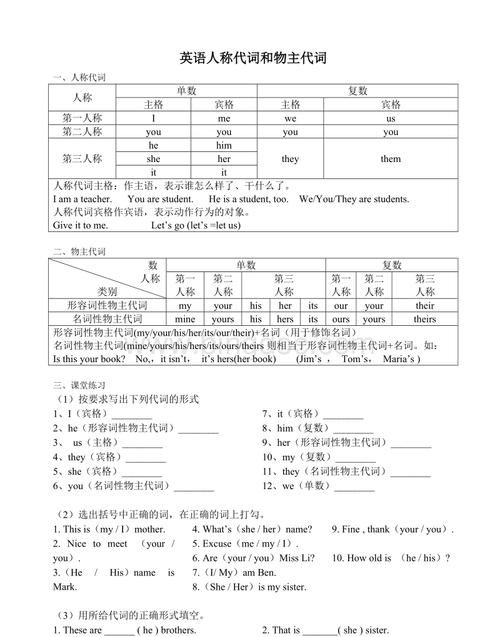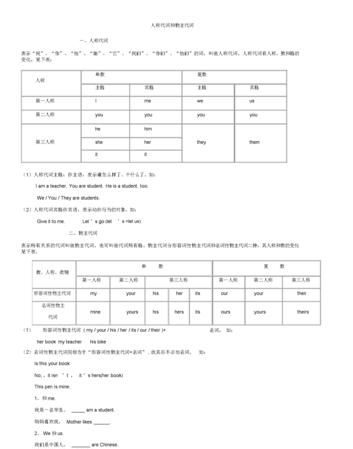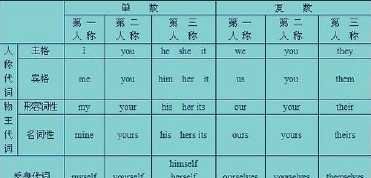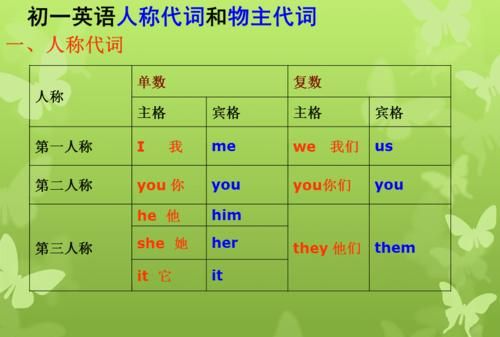本文目录
小学三年级下册语文期末考试题
小学语法总结:
时态 定义 特征 动词的变化规则
一
般
现
在
时 表示经常性或习惯性的动作. every day/morning/…
usually 第三人称单数的变化情况:
1. 一般情况在词尾直接加-s
2. 以ch,sh,s,x或o结尾的词加-es
3. 以辅音字母加y结尾的词,将y改成i再加-es
现
在
进
行
时 表示现在或现在一阶段正在进行的动作. now/ look/ listen 现在分词的变化情况:
1. 一般情况在词尾直接加-ing
2. 以e结尾的词,去掉e再加-ing
3. 以重读闭音节结尾的词,双写最后一个字母加-ing
一
般
过
去
时 表示过去某时发生的动作或情况. yesterday morning/afternoon/evening
last year/month
a minute ago/an hour ago
this morning/afternoon/evening 动词过去式的变化情况:
1. 一般情况在词尾直接加-ed
2. 以e结尾的词加-d
3. 以辅音字母加y结尾的词,将y改成i再加-ed
4. 以重读闭音节结尾的词,双写最后一个字母加-ed
一
般
将
来
时 表示将要发生的事情 tomorrow
the day after tomorrow/
the next day/Monday…
at the weekend/tonight
tomorrow night/morning/afternoon 主要构成
be going to/will + 动词原形
be +形容词
凡是在must, mustn’t, can, can’t, let’s, don’t, may,will后的一定要用动词的原形
二、名词的复数。
名词按其数,可分两种:可数名词和不可数名词.
可数名词的复数变化规则:
1.一般情况下,直接在词尾加-s, 如:girl-girls, book-books, pen-pens
2.以s,x,sh,ch结尾的词,在词后加-es, 如:class-classes, box-boxes, match-matches,
3.以辅音字母+y结尾的,变y 为i 再加-es, 如:city-cities, family-families, country- countries
4.以f或fe结尾的,变f或fe为v再加-es, 如:knife-knives, wife-wives, life-lives,
5.以o 结尾的加-es或-s, 如: radio-radios, tomato-tomatoes, potato-potatoes, zoo-zoos, photo-photos,
6.man-men, woman-women, foot-feet, child-children,
三、形容词的比较级、最高级。
形容词有比较级与最高级之分, 单音节词的变化规则:
1.一般情况下,直接在词尾加-er或-est, 如:small-smaller-smallest, short-shorter-shortest
2.以e结尾的,加-er或-est, 如:large-larger-largest, nice-nicer-nicest.
3.以辅音字母+y结尾的, 变y 为i 再加-er或-est, 如:busy-busier-busiest, heavy-heavier-heaviest.
4.以重读闭音节,一个辅音字母结尾的,双写该字母,再加-er或-est, 如:big-bigger-biggest, thin-thinner-thinnest.
5.多音节的词,前加more, most, 如: beautiful-more beautiful-most beautiful.
6.good-better-best
四、be 动词,助动词。
现阶段be动词形式有: am, is, are, were, was, isn’t, aren’t, weren’t, wasn’t
助动词形式有: do, does, did, don’t, doesn’t, didn’t
※ 1. 在英语句子中进行变化的时候, 有be动词的就在be动词上变化,变 “过去”, “否定”;
否定 过去 否定
am-------am not(第一人称 “I” ) am, is ------ was --------- wasn’t
is ------- isn’t (第三人称) are ------were --------- weren’t
are------aren’t (you和其它人称)
2. 没有be动词的就要加助动词;
否定 过去 过去否定
do -----don’t ------did---------didn’t
does(第三人称单数)-----doesn’t ------did---------didn’t
五.人称代词
主语 物主代词 宾格
形容词性 名词性
I my mine me
she her hers her
he his his him
it its its it
you your yours you
we our ours us
they their theirs them
六.特殊疑问词
What is this?
What is this in English?
What is the matter?
What is the weather like?
What is the country like?
What is she/he/
What do you like?
What What does he do?
What do you have for…?
What colour…?
What class…?
What grade…?
What time…?
What day…?
What do/does/did+…?
How are you?
How old…?
How How many…?
How much…?
How long…?
How do/does/did+…?
Which +n.+ (be动词/助动词)+…?
Whose+ n.+ (be动词/助动词)+…?
Where+ v. (be动词/助动词)+sb. +…?
When +v. (be动词/助动词)+ sb.+…?
Who +v. (be动词/助动词/行为动词)+sb.+…?
Why +v. (be动词/助动词)+ sb. +…?
※有can, will, must这几个词的句子,所有的句型转换都在此词变化
动词的时态
11.1 一般现在时的用法
1) 经常性或习惯性的动作,常与表示频腮度的时间状语连用。时间状语: every…, sometimes, at…, on Sunday。例如:
I leave home for school at 7 every morning. 每天早上我七点离开家。
2) 客观真理,客观存在,科学事实。例如:
The earth moves around the sun. 地球绕太阳转动。
Shanghai lies in the east of China. 上海位于中国东部。
3) 表示格言或警句。例如:
Pride goes before a fall. 骄者必败。
注意:此用法如果出现在宾语从句中,即使主句是过去时,从句谓语也要用一般现在时。
例:Columbus proved that the earth is round. 哥伦布证实了地球是圆的。
4) 现在时刻的状态、能力、性格、个性。例如:
I don't want so much. 我不要那么多。
Ann writes good English but does not speak well. 安英语写得不错,讲的可不行。
比较:Now I put the sugar in the cup. 把糖放入杯子。
I am doing my homework now. 我正在做功课。
第一句用一般现在时,用于操作演示或指导说明的示范性动作,表示言行的瞬间动作。第二句中的now是进行时的标志,表示正在进行的动作的客观状况,所以后句用一般现在时。
返回动词的时态目录
11.2 一般过去时的用法
1)在确定的过去时间里所发生的动作或存在的状态。例如:时间状语有:yesterday, last week, an hour ago, the other day, in 1982等。例如:
Where did you go just now? 刚才你上哪儿去了?
2)表示在过去一段时间内,经常性或习惯性的动作。例如:
When I was a child, I often played football in the street. 我是个孩子的时候,常在马路上踢足球。
Whenever the Browns went during their visit, they were given a warm welcome.
那时,布朗一家无论什么时候去,都受到热烈欢迎。
3)句型:It is time for sb. to do sth "到……时间了" "该……了"。例如:It is time for you to go to bed. 你该睡觉了。
It is time that sb. did sth. "时间已迟了" "早该……了" ,例如It is time you went to bed. 你早该睡觉了。
would (had) rather sb. did sth. 表示'宁愿某人做某事'。例如:I'd rather you came tomorrow.还是明天来吧。
4) wish, wonder, think, hope 等用过去时,作试探性的询问、请求、建议等,而一般过去时表示的动作或状态都已成为过去,现已不复存在。例如:I thought you might have some. 我以为你想要一些。
比较:Christine was an invalid all her life.(含义:她已不在人间。)
Christine has been an invalid all her life.(含义:她现在还活着)
Mrs. Darby lived in Kentucky for seven years. (含义:达比太太已不再住在肯塔基州。)
Mrs. Darby has lived in Kentucky for seven years. (含义:现在还住在肯塔基州,有可能指刚离去)
注意: 用过去时表示现在,表示委婉语气。
1)动词want, hope, wonder, think, intend 等。例如:
Did you want anything else? 您还要些什么吗?
I wondered if you could help me. 能不能帮我一下。
2)情态动词 could, would。例如:
Could you lend me your bike? 你的自行车,能借用一些吗?
返回动词的时态目录
11.3 used to / be used to
used to + do:"过去常常"表示过去习惯性的动作或状态,但如今已不存在。例如:
Mother used not to be so forgetful. 老妈过去没那么健忘。
Scarf used to take a walk. 斯卡夫过去常常散步。
be used to + doing: 对……已感到习惯,或"习惯于",to是介词,后需加名词或动名词。例如:
He is used to a vegetarian diet.
Scarf is used to taking a walk. 斯卡夫现在已习惯于散步了。
典型例题
---- Your phone number again? I ___ quite catch it.
---- It's 69568442.
A. didn't B. couldn't C. don't D. can't
答案A. 本句虽没有明确的时间状语,但从语意上看出,在听的时候没有听懂这个动作发生在过去,因此应用过去时。
返回动词的时态目录
11.4 一般将来时
1) shall用于第一人称,常被will 所代替。will 在陈述句中用于各人称,在征求意见时常用于第二人称。例如:
Which paragraph shall I read first? 我先读哪一段呢?
Will you be at home at seven this evening? 今晚七点回家好吗?
2) be going to +不定式,表示将来。
a. 主语的意图,即将做某事。例如:What are you going to do tomorrow? 明天打算作什么呢?
b. 计划,安排要发生的事。例如:The play is going to be produced next month。这出戏下月开播。
c. 有迹象要发生的事。例如:Look at the dark clouds, there is going to be a storm. 看那乌云,快要下雨了。
3) be +不定式表将来,按计划或正式安排将发生的事。例如:
We are to discuss the report next Saturday.我们下星期六讨论这份报告。
4) be about to +不定式,意为马上做某事。例如:
He is about to leave for Beijing. 他马上要去北京。
注意:be about to do 不能与tomorrow, next week 等表示明确将来时的时间状语连用。
返回动词的时态目录
11.5 be going to / will 用于条件句时,be going to表将来,will表意愿。例如:
If you are going to make a journey, you'd better get ready for it as soon as possible.
Now if you will take off your clothes, we will fit the new clothes on you in front of the mirror.
返回动词的时态目录
11.6 be to和be going to
be to 表示客观安排或受人指示而做某事,be going to 表示主观的打算或计划。例如:
I am to play football tomorrow afternoon. 明天下午我去踢球。(客观安排)
I'm going to play football tomorrow afternoon. 明天下午我想去踢球。(主观安排)
返回动词的时态目录
11.7 一般现在时表将来
1)下列动词come, go, arrive, leave, start, begin, return的一般现在时可以表示将来,主要用来表示在时间上已确定或安排好的事情。例如:
The train leaves at six tomorrow morning. 火车明天上午六点开。
When does the bus star? It stars in ten minutes. 汽车什么时候开?十分钟后。
2)以here, there等开始的倒装句,表示动作正在进行。例如:
Here comes the bus. = The bus is coming. 车来了。
There goes the bell. = The bell is ringing. 铃响了。
3)在时间或条件句中。例如:
When Bill comes (不是will come), ask him to wait for me. 比尔来后,让他等我。
I'll write to you as soon as I arrive there. 我到了那里,就写信给你。
4)在动词hope, take care that, make sure that等的宾语从句中。例如:
I hope they have a nice time next week. 我希望他们下星期玩得开心。
Make sure that the windows are closed before you leave the room. 离开房间前,务必把窗户关了。
返回动词的时态目录
11.8 用现在进行时表示将来
下列动词come, go, arrive, leave, start, begin, return等现在进行时可以表示将来。例如:
I'm leaving tomorrow. 明天我要走了。
Are you staying here till next week? 你会在这儿呆到下周吗?
返回动词的时态目录
11.9 现在完成时
现在完成时用来表示之前已发生或完成的动作或状态,其结果的影响现在还存在;也可表示持续到现在的动作或状态。其构成:have (has) +过去分词。
返回动词的时态目录
11.10 比较一般过去时与现在完成时
1)一般过去时表示过去某时发生的动作或单纯叙述过去的事情,强调动作;现在完成时为过去发生的,强调过去的事情对现在的影响,强调的是影响。
2)一般过去时常与具体的时间状语连用,而现在完成时通常与模糊的时间状语连用,或无时间状语。
一般过去时的时间状语:yesterday, last week,…ago, in1980, in October, just now等,皆为具体的时间状语。
现在完成时的时间状语:for, since, so far, ever, never, just, yet, till/until, up to now, in past years, always等,皆不确定的时间状语。
共同的时间状语:this morning, tonight, this April, now, already, recently, lately 等。
3)现在完成时可表示持续到现在的动作或状态,动词一般是延续性的,如live, teach, learn, work, study, know.。
一般过去时常用的非持续性动词有come, go, leave, start, die, finish, become, get married等。例如:
I saw this film yesterday. (强调看的动作发生过了)

五年级人称代词和物主代词专练及答案
这个应该对你有帮助
人称代词,物主代词,反身代词练习题
一;用适当的代词填空。
1.Is that car yours? Yes, it is ______.
2.How is Mr Li? _______is fine, thanks.
3.Put on______ hat! I am going to put it on.
4.Who is that over here? It is_______.
5.The old man lives by ______.
6.I am sure I can do it all by _______.
7.Look,is this room beautiful? I painted it _____.
8.I’d like to go for a walk. ______ too.
9.What are ______jobs? They are students.
10.We think to _________.
11.Mary is old enough to take care of ______.
12.It is perfume, I made it __________.
13.Look at ____. She is very well.
14.Can you carry this box upstairs by _______.
15.You and she did very well in the test.
The teacher said that he would praise _____ and______.
16.The story ______was very good, but you are did not tell it well.
17.Give Jane this watch.. Give______ this one too.
18.Sara is not pleased with ______in this English test.
19.Did you enjoy _______at the party yesterday?
20.She wants to buy a car of _____own.
二:选择填空.
1. Mr. More has more money than Mr. Little . But he doesn’t enjoy _______.
A. he B. him C. his D. himself
2. Lily was 9 years old. _____ was old enough to go to school ________.
A. She , she B. She , herself C. Her, herself D. Her. she
3. Jim’s watch is much newer than _________.
A. hers B.she C. her D. herself
4.Would you like _____for super?
A: something Chinese B:Chinese something
C: anything Chinese D: Chinese anything
5.______ piano is too old ,but she still liked playing it.
A. She B. She’s C. Hers D. Her
6.Who taught you English last year?
Nobody taught me . I taught ______.
A. me B. myself C. mine D. I
7.That bike is _________?
A.he B. him C. his D. it
8. We bought ______ a present, but _______ didn”t like it.
A. they, them B. them , they C. themselves , their
D. theirs, they
答案
1. mine
2. he
3. your
4. her
5. here
6. myself
7. myself
8. me
9. those
10. ourselves
11. herself
12. myself
13. her
14. yourself
15. you, her
16. you made
17. her
18. her results
19. yourself
20. her
1. D
2. B
3. A
4. C
5. D
6. B
7. C
8. B
++++希望可以帮助你 被你采纳 我也可以加分哟 哈哈

英语的物主代词有哪些五年级下册
人称代词分为(第一人称、第二人称、第三人称)主格(I,we,you,he,she,it,they);(第一人称、第二人称、第三人称)宾格(me,us,you,him,her,it,them);物主代词分为(第一人称、第二人称、第三人称)形容词性的物主代词(my,our,your,his,her,its,their);(第一人称、第二人称、第三人称)名词性的物主代词(mine,ours,yours,his,hers,its,theirs)

小学五年级英语语法基础知识大全
小学五年级的时候在时态方面,我们已经接触了一般现在时,一般过去时,现在进行时,一般将来时等,如果你是剑桥版,可能会有其他时态,我们还学了名词(可数名词和不可数名词),代词(代词中有人称代词,指示代词,物主代词),以及句子种类(陈述句,否定句,一般疑问句,特殊疑问句),There be 句型等等

以上就是关于五年级英语人称代词 ,小学三年级下册语文期末考试题的全部内容,以及五年级英语人称代词 的相关内容,希望能够帮到您。

